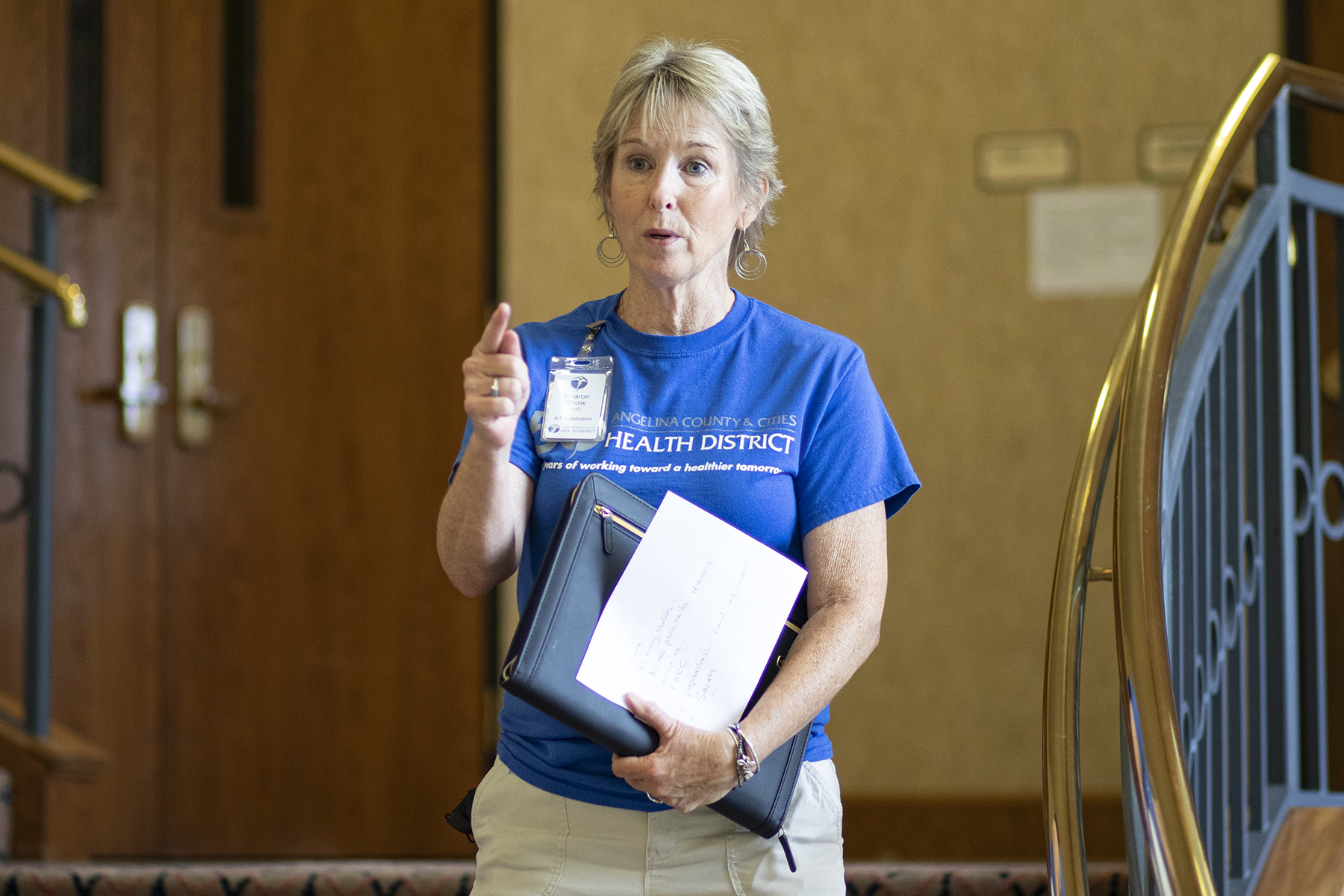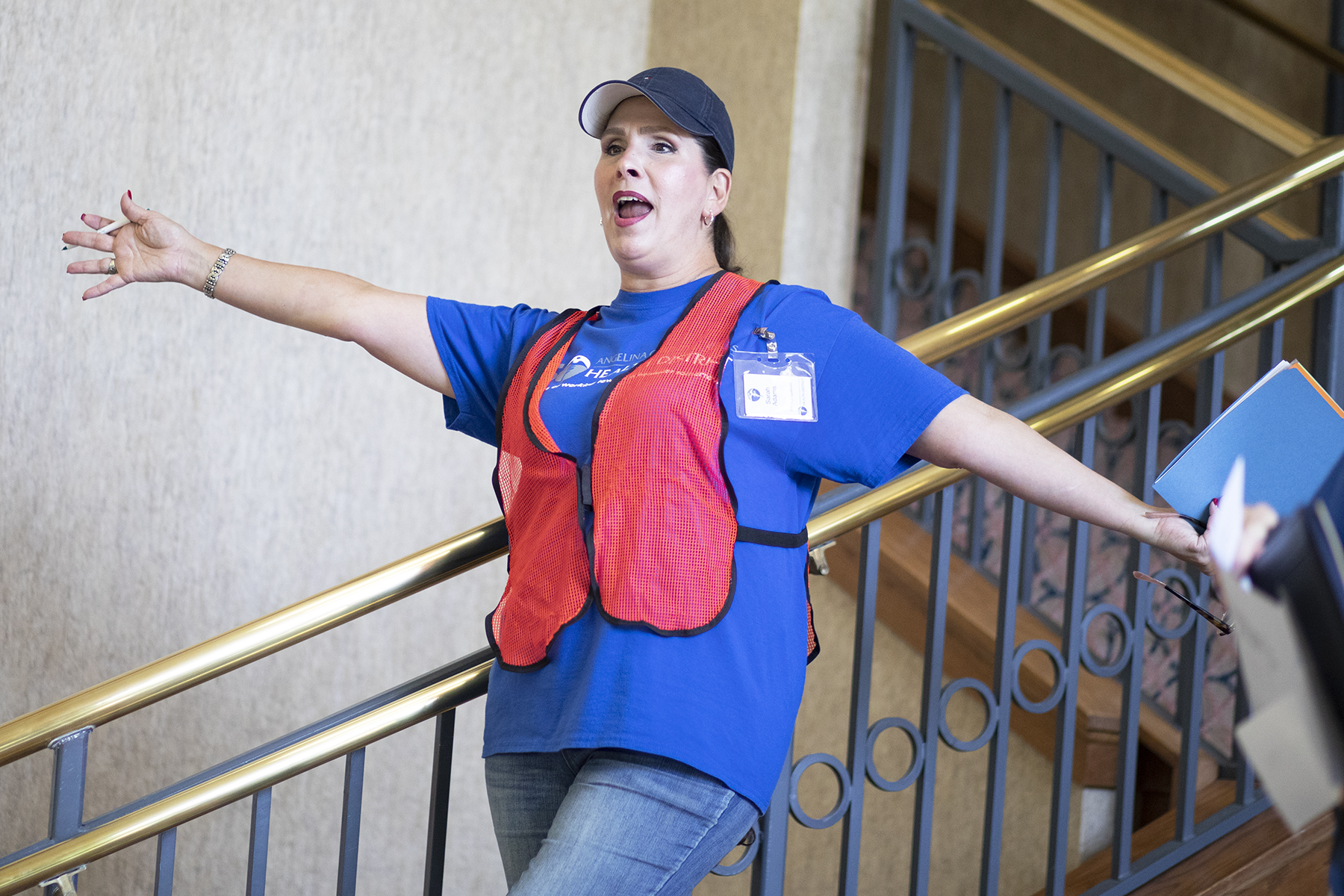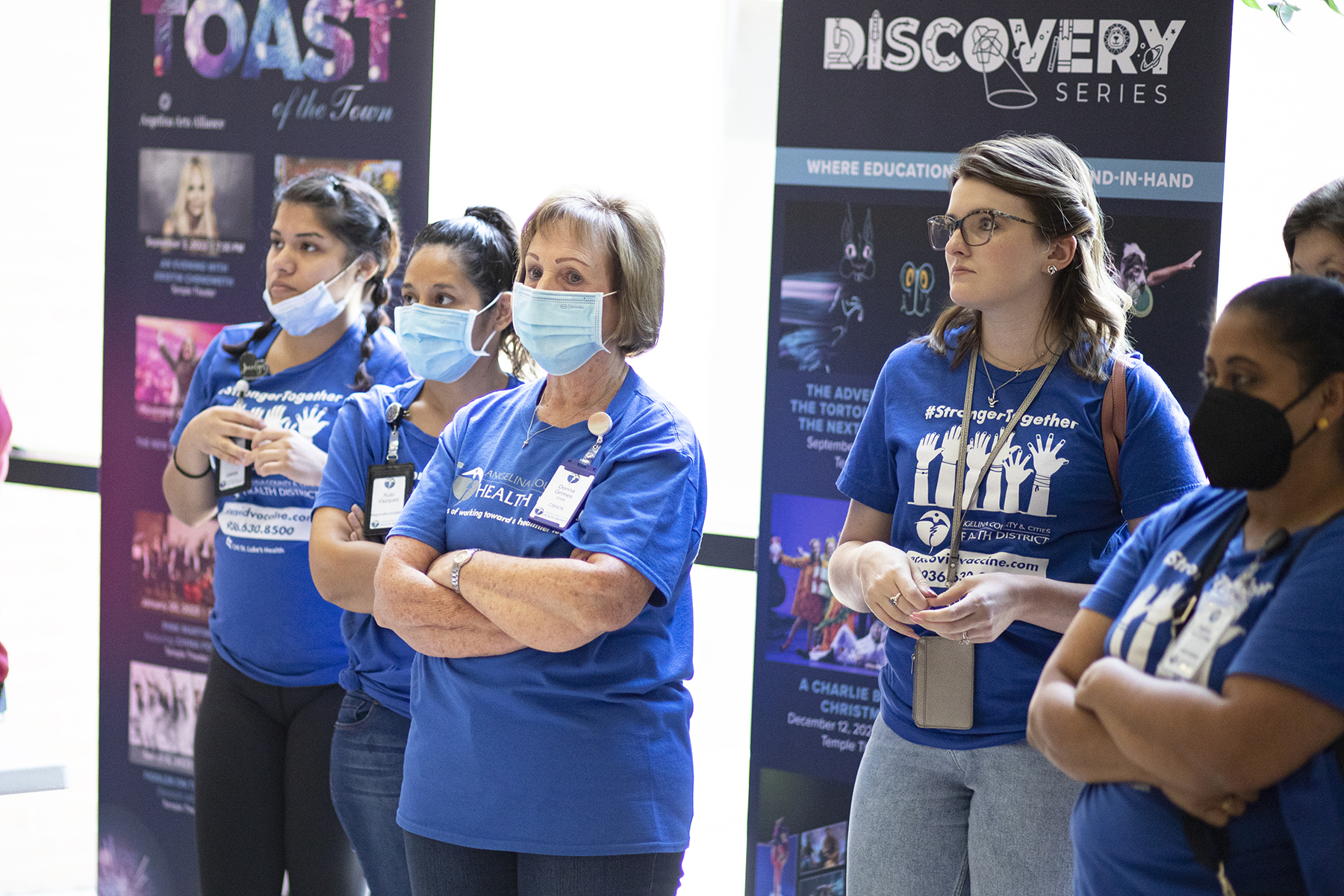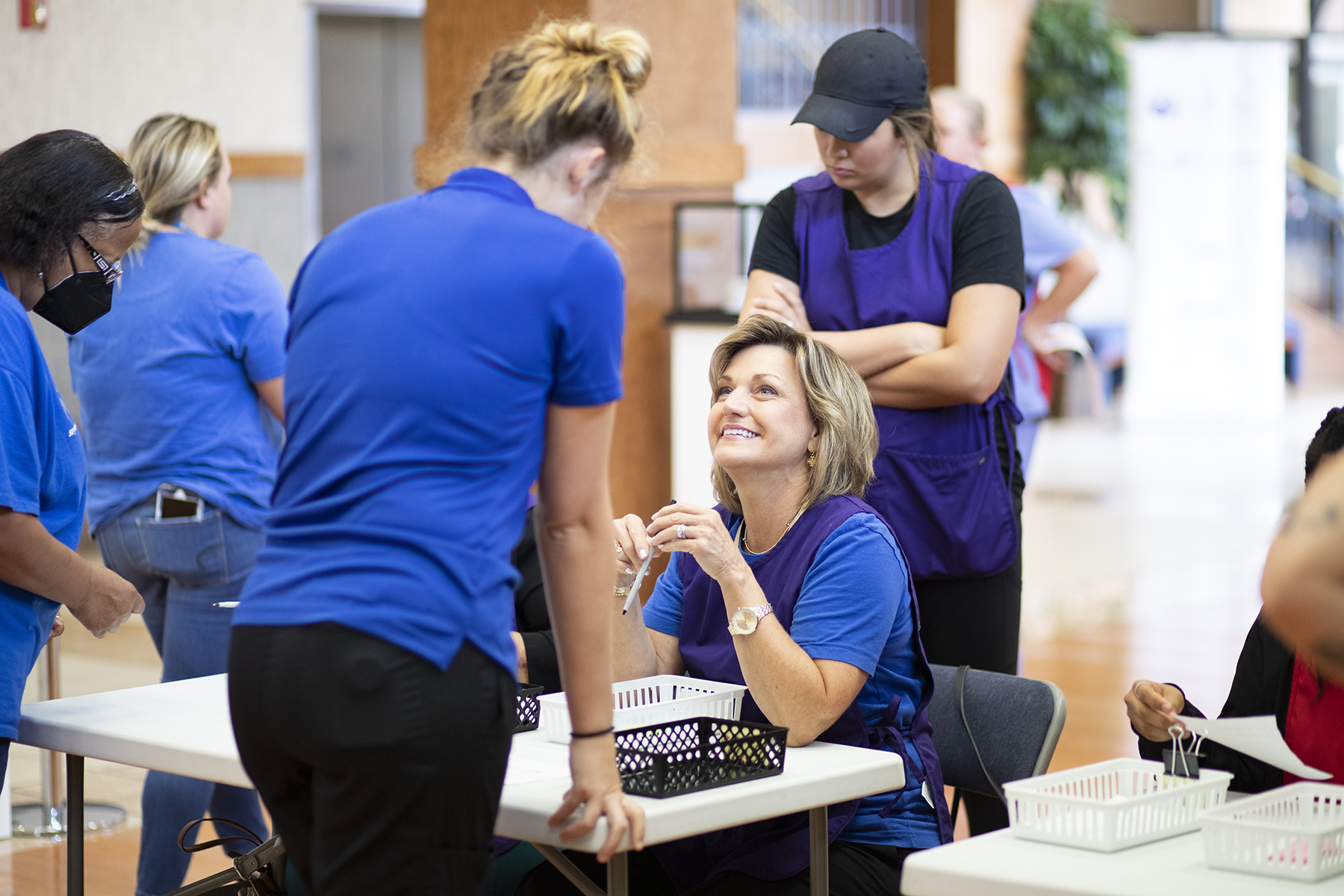Yes, the event involved a made-up scenario, but the pretend part by design was based on realistic situations.

Sharon Shaw of Angelina County and Cities Health District addresses a crowd of participants prior to Thursday’s event held at Temple Theater on the Angelina College campus. The mock scenario implemented was an effort to conduct a Public Health Preparedness Point of Dispensing (POD) drill designed prepare health workers for future health crises. (Gary Stallard/AC News Service photo)
The Angelina County and Cities Health District (ACCHD) teamed up on Thursday at Temple Theater on the Angelina College campus to conduct a Public Health Preparedness Point of Dispensing (POD) drill designed to ensure health care workers have the opportunity to remain proactive, rather than reactive, during certain levels of health crises. Participants included members of the AC Health Careers Division (faculty and students), Southeast Texas Regional Advisory Council (SETRA), Angelina County Emergency Management Coordinator and Department of State Health Services Region 4/5N.
In Thursday’s mock drill, participants were given the story of a college student involved in a theater production who later began exhibiting symptoms of meningitis. Under the scenario, the student, who would test positive for Meningitis B, had “extensive interaction” with several others.

Sarah Adams, Public Health Preparedness and Infections Disease Director, greets the crowd of participants prior to Thursday’s event held at Temple Theater on the Angelina College campus. The mock scenario implemented was an effort to conduct a Public Health Preparedness Point of Dispensing (POD) drill designed prepare health workers for future health crises. (Gary Stallard/AC News Service photo)
In a real-world instance, the ensuing actions can be critical, which is exactly why ACCHD’s Sharon Shaw said such an exercise featuring Public Health Preparedness Emergency Response is vital for everyone involved.
“We’ve all learned lessons through COVID and other real-life events that we need to form partnerships,” Shaw said. “We’ve got a great partnership with Angelina College already, and we wanted to get new nurses who have not participated in something with us in the past. We’ve closed the Health Department, and we’ve brought every member of our staff here. We have all the nurses from the AC Nursing program who are available, and we’re going to do a mock Meningitis B exposure.”

Attendees receive instructions prior to Thursday’s event held at Temple Theater on the Angelina College campus. With the help of the Angelina County and Cities Health District and partners, a mock scenario was implemented in an effort to conduct a Public Health Preparedness Point of Dispensing (POD) drill designed prepare health workers for future health crises. (Gary Stallard/AC News Service photo)
Participants ran through the gamut of actions, including screenings, administration of faux medication and potential medical consulting when necessary. Those present landed in various teams, and the teams switched places throughout the drill to ensure everyone experienced each level of response management, according to Shaw.
“With emergency medical care, it’s so vital to be proactive in every possible case,” Shaw said. “We don’t wait until the hurricane’s upon us to make sure we’re ready in that situation. We try to have something in place ahead of time in case we have an event on campus and a student is exposed to meningitis, which is a college-age disease. With the right preparation, we’d be able to mobilize a group and hand out medication in that small window of time we have to treat people before someone else grows ill.
“We call our partners together, and we just do it.”

Participants run through specific screening drills as part of Thursday’s event held at Temple Theater on the Angelina College campus. With the help of the Angelina County and Cities Health District and partners, a mock scenario was implemented in an effort to conduct a Public Health Preparedness Point of Dispensing (POD) drill designed prepare health workers for future health crises. (Gary Stallard/AC News Service photo)
Sarah Adams, Public Health Preparedness and Infections Disease Director, said she wanted Thursday’s experience to be as realistic as possible – not just for training purposes, but also for potential preparation for real-case scenarios. For that reason, Adams said she chose the meningitis story line for the event simply because it’s entirely plausible for any college campus.
“Our overall goal today is just to make sure our teams are prepared to deal with whatever situation arises in helping to protect our community from the possibility of further expansion of a disease,” Adams said. “We chose this meningitis scenario because most college students are required to have the meningococcal meningitis vaccine in order to enroll in college.”
Adams cited latest studies showing there have been 500 documented meningitis cases across the United States, and out of those, the Meningitis B strain contributed to 160 of those.
“The regular meningococcal meningitis vaccine does not protect against Meningitis B,” Adams said. “So, when you’ve got a bunch of college students together, there’s an increased risk of exposure and spread. That’s one reason this mock drill is so realistic.
“Hopefully, what we accomplish today will be of great benefit in future situations such as this.”
For further information, contact Krista Brown at kbrown@angelina.edu






